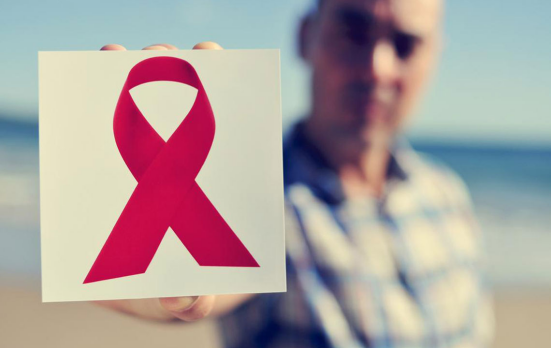Acquired immunodeficiency syndrome (AIDS) is a disease caused by the human immunodeficiency virus (HIV). This virus attacks and damages the body's immune system, making the patient vulnerable to other infections and diseases.

Causes
- HIV is spread through infected blood or other body fluids, such as semen.
- HIV can be spread through any type of sexual contact. Having oral, vaginal, or anal sex with an infected person can introduce the virus into another person's body. The virus can also enter another person's body through sores in the mouth of an infected person.
- HIV can also be spread through infected needles, such as when someone shares a needle that has been contaminated with an infected person's blood.
- This happens mainly when people share needles when taking illegal intravenous drugs.
- HIV can also be spread through blood transfusions. For this reason, most hospitals around the world screen new blood banks for HIV.
- HIV can also be passed from mother to child during pregnancy, childbirth, and even breastfeeding.
From HIV to AIDS
You can have HIV for many years without developing AIDS.
White blood cells in the body fight infection. HIV targets CD4 cells, a type of white blood cell. Over time, HIV can significantly reduce the number of CD4 cells in your body.
AIDS is diagnosed when the CD4 cell count falls below 200.
Symptoms
The symptoms of HIV and AIDS depend on the stage of infection.
Primary (acute HIV) infection:
- Flu-like symptoms develop within 4 to 6 weeks of infection.
- Symptoms may include fever, sore throat, headache, muscle pain, joint pain, and swollen lymph nodes.
Clinically latent (chronic HIV) infection:
- The only symptom in this stage is swollen lymph nodes.
- With medication, this stage can last for decades.
Symptoms of AIDS
- Recurring fever
- Weight loss
- Chronic diarrhea
- Fatigue
- Night sweats
- Rash
- Oral lesions
Even without treatment, people with HIV can live for a decade in the chronic stage without showing any symptoms of AIDS. However, there is still no cure.





